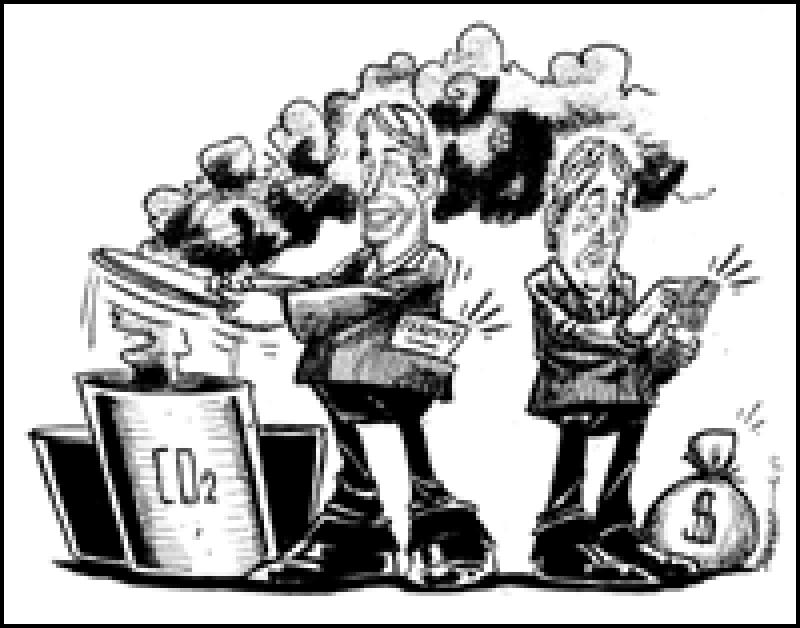
The Regional Greenhouse Gas Initiative, an effort by nine Northeast and Mid-Atlantic states, including the tri-state New York area, to reduce carbon dioxide emissions is developing a cap-and-trade program. The program sets an emissions cap and allows companies that reduce emissions below it to sell carbon credits to entities emitting more than their allowance. The group expects to develop a model, which will set a cap on how much each state can emit, by early summer, said Joanne Morin, a climate change program manager with the New Hampshire Department of Environmental Services and an RGGI participant, adding it will take each state at least a year to implement the plans.
Derivatives users have already shown their interest in trading carbon and cap-and-trade programs will cause this market to surge, according to Peter Fusaro, chairman of Global Change Associates. He expects the greenhouse gas market to grow tenfold in the next five years to USD100 billion. He predicts of all the greenhouse gases, which includes CO2, sulfur dioxide and nitrogen oxide, carbon will be traded most.
Twenty-eight states impose some sort of carbon emission standard, but a federal requirement lies in the near future because corporations with facilities in multiple states want one guideline, Fusaro said. The SOX and NOX markets were governed on a state-by-state basis until frustrated corporates asked the government to step in. Multi-state corporates including Southern California Edison, American Electric Power and Cinergy have all requested government intervention.
"The minute [CO2 emission reductions] become mandatory, this market rocks and rolls," Fusaro said. Many players have held back and not sold their carbon quotas because they expect prices to rise significantly, as would be the case if the market were federally regulated. "This is an emerging market in the best sense of the word," he said.
Companies like cap-and-trade programs because they allow emissions to be reduced gradually, which gives them time to comply while investing in new technology. RGGI's cap-and-trade program focuses on power plants, but it may look at other sources of carbon once it's implemented.







